

Why Is This Happening? with Chris Hayes: Home From School with Dana Goldstein- What is the impact on family life from having students home from school due to coronavirus. Radiolab: The Girl Who Doesn't Exist - The story a girl from a reclusive family who tries to emancipate herself but can’t prove to the government she even exists. All My Relations : Whole Family Wellness - Overveiw of an indigenous approach to prenatal, baby, postpartum, fatherhood, and a whole family approach to wellness. Schools In :‘It’s another version of empty nesting’ - Discussion of how we should prepare families for when their children go to school for the first time. Schools In: Taking the focus off of “screen time” - How much of an emphasis should parents/guardians put on their childrens screen time. Taking the focus off of “screen time” As the pandemic continues, kids are relying increasingly on the internet for learning and connection.
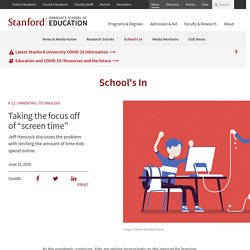
That translates to a lot of screen time, which parents may find concerning—especially if they fear their children are being confronted with deceptive or manipulative content. “There are bad actors who realize that more and more people, especially young people, are now online, and we do need to be more vigilant,” says Jeff Hancock, a professor of communications at Stanford and founding director of the Stanford Social Media Lab. “But I think we need to balance the panic we’ve instilled in so many parents with recognizing what kids can be doing online that’s really valuable.” On this episode of School’s In, Hancock joins Stanford Graduate School of Education Dean Dan Schwartz and Senior Lecturer Denise Pope to talk about how adults and kids can embrace the benefits of social media while navigating its hazards.
Death, Sex & Money: Siblinghood - Alix Sugarman: Telling someone for the first time that I have a twin, and people get so excited.
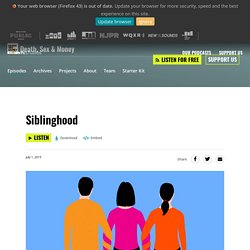
They love to hear that. They're like, "Oh my god, like, well what's it like? " And I always kind of have to preface it by being like, "Oh well, you know, it's actually pretty dark.” This is Death, Sex & Money. In New Orleans: From Raising Hell to Raising Kids. Terri Coleman: It's still broken.
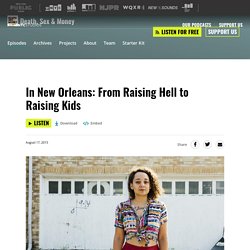
And authoritative voices are going to, I think, come in and wrap everything in a narrative of recovery and wrap everything in, "How well we've done" and "How happy it is" and "Look at the shiny new, like, restaurants and like the taco trucks. " I really love tacos. But there's more work to be done. Death, Sex & Money : I Had Babies To Pay For My Baby: How one Mother used surrogacy to attain financial stability for her own family. SARAH SHORT: I was trying to think of a way to make money without putting my kids in daycare.
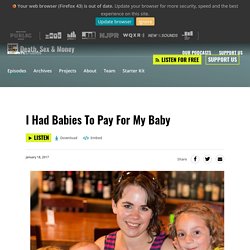
And I filled out this application and they called me and they were like, "Hey, you're pretty cool but nobody's gonna want your eggs. " But she was like, you're a great candidate for surrogacy. This is Death, Sex & Money. The show from WNYC about the things we think about a lot… Death, Sex & Money : Two Wheelchairs and A Baby - Raising a family as parents with disabilities. Hey everyone.

Before we start, I want to tell you about something new we’re doing next week: a live advice show with your questions about anything. Dilemmas about death, sex, money...we’ve even gotten a question about managing email overload. I’ll be going through your questions live on stage in New York with comedian Hari Kondabolu and his mom Uma Kondabolu. You may remember them from their hilarious interview on the show last year that was chock-full of pithy wisdom about how to do life right. Another question we’ve gotten — how do you deal with the guilt of making the choice to live far from your family? On the night of Wednesday, May 10, Hari and Uma will join me to give you advice live. We’ll livestream video from the event so all of you can watch along.
Death, Sex & Money : Opportunity Costs: The Class Slide After Divorce. JAIMIE SEATON: I always thought I was the smart one.

Death, Sex & Money Sharing DNA, and Nothing Else : One woman's story after she found out via a commericial DNA test that her family was not actually her biological family. Death, Sex & Money - A story of the difficult decisions one family must make when caring for their disabled adult sons. Hey, it’s Anna.
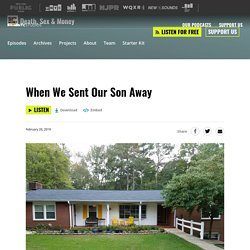
In this episode, we talk about suicide and suicidal ideation. If you’re struggling, or just need to talk to someone, please call the National Suicide Prevention Hotline, at 1-800-273-8255. DIANE GILL MORRIS: When your kids are little and they’re acting inappropriately you can put your foot down. Death, Sex & Money : The Children Of Heart Mountain - Profile of families that come together yearly for an annual reunion for Japanese Americans who were imprisoned at internment Camps. TAKASHI HOSHIZAKI: Japan had attacked Pearl Harbor.
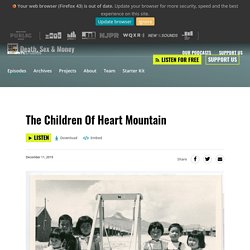
We were at war. And what was happening to us was sort of the fallout. Mindshift: Overcoming Childhood Trauma - How Parents and Schools Work to Stop the Cycle. If it is the case that a student is homeless, which Kapsalis said is common, she and her staff consider this when acknowledging a student.
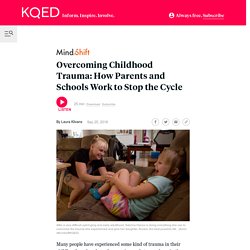
“We know that there's nobody getting you up in the morning. We know that you're on your own and yet you're here,” said Kapsalis. “It's five minutes before the school starts. That tells us that you want to be a student today that tells us you want to be successful today.” The school’s environment is built from the idea that each student is an individual and that every interaction is significant. Mindshift : Stepping Back from Overparenting - A Stanford Dean's Perspective on overparenting. When Julie Lythcott-Haims was dean of freshmen at Stanford, she saw troubling behavior from some of the most accomplished students in the country.
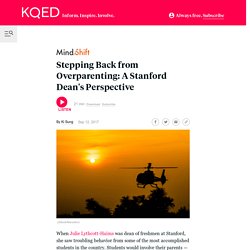
Students would involve their parents — and parents would involve themselves — in every aspect of the student's life and school work at a time when these young adults were supposed to exercise greater independence. “Parents seemed to feel a need to talk with their college student, inform them about something, check in about something, know their whereabouts, ask, 'How did that quiz go? '” said Lythcott-Haims. Sometimes the constant checking-in even seemed to verge on the unethical. 99% Invisible: Invisible Women - How driving data collected by researchers shows the very different roles men and women assume in their family lives.
Snow plowing patterns seem an unlikely subject of a gender study conducted in a small town in Sweden. After all, the town’s approach appeared logical and neutral enough on the surface: plow major roads first, particularly those leading into and out of town, followed by smaller local streets. It is the same sequence played out in many cities around the world. As researchers dove into the subject, however, they discovered that male and female driving patterns were markedly different. This American Life: Grownups Know Things - the story of a woman who wants to know why she was taken away from her mom as a kid. The Daily: A New Way to Mourn - How family mourning rituals have been changed by the pandemic. Michael barbaro Catherine, I wonder if you can tell me a little bit about what you’ve been watching from your home in Toronto ever since the pandemic started hitting North America. catherine porter Well, I have written a lot about death over the years. It’s one of those things that, for whatever reason, it interests me and I keep coming back to it.